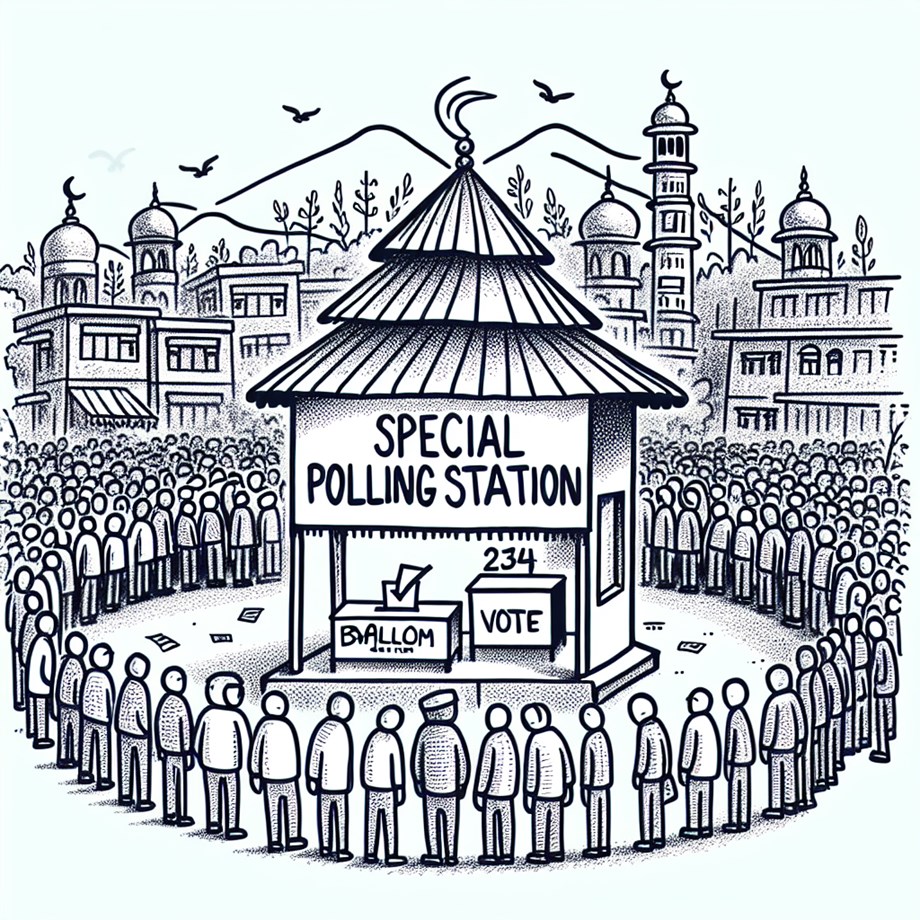Romania's Political Tides: Can the West Resist?
As Romania faces a turbulent political landscape with shifting voter allegiances, the rise of the far-right challenges traditional party dynamics.
Published December 02, 2024 - 00:12am

Image recovered from devdiscourse.com
Romania is currently navigating through a politically tumultuous period as parliamentary elections coincide with significant shifts in voter sentiments. The elections, a crucial determinant for Romania's legislative future, are being closely observed for their potential to reshape the country's governance, especially given the rise of far-right influence.
The parliamentary elections, slated for a crucial weekend, have witnessed a surge in the popularity of the far-right party, the Alliance for Uniting Romanians (AUR). This development comes in the wake of the surprising success of Calin Georgescu, a prominent far-right figure, in the recent presidential election's initial round. Georgescu's success has ignited debates over Romania's future political trajectory and its implications for the nation's pro-Western policies, including its support for Ukraine.
The campaigning period has been characterized by intense discussions on economic issues, notably rising living costs and significant budgetary concerns. These topics have resonated with the electorate, which has shown increasing dissatisfaction with mainstream political institutions. The presence of 39 political parties and various minority organizations in the elections exemplifies Romania's fragmented political landscape. The Social Democrats (PSD), currently governing in coalition with the National Liberal Party (PNL), lead the polls. However, the collective far-right presence, which has surged from under 10% to an estimated 30% in recent projections, poses a significant challenge to the existing political order.
The proportional voting system employed in Romania requires parties to surpass a 5% threshold to secure representation in the parliament, while political alliances face an even higher bar, contingent on the number of parties involved. This system sets the stage for complex post-election negotiations, as forming a stable government will demand strategic alliances across the political spectrum.
High-profile political figures, including President Klaus Iohannis, have underscored the elections' importance, emphasizing the legislative body's role in shaping the country's laws and governing strategies. Despite the PSD's apparent lead, exit polls suggest that the non-traditional votes of Romanian expatriates might influence overall outcomes significantly. The expatriate vote is anticipated to favor the far-right and centrist opposition parties, thus adding another layer of uncertainty to the election results.
The political climate is further complicated by the looming presidential election's second round. While independent, far-right candidate Calin Georgescu emerged as a frontrunner, political analysts remain cautious about potential shifts in electoral outcomes. The Romanian authorities and their constitutional provisions are on alert for possible electoral interference, which has almost derailed the electoral process. Such uncertainties put definitive results in limbo, pending Supreme Court decisions and potential election reruns.
If the far-right were to secure substantial parliamentary presence, critical questions arise regarding Romania's traditional political orientations, especially its alliances and support towards Ukraine. The possibility of a fragmented parliament with a strong far-right contingent poses challenges in forming a coherent government and maintaining Romania's orientation towards Western alliances.
Significantly, the PSD continues to target a coalition with centrist groups, eyeing a potential governing pathway without extremist participation. However, the considerable budget deficit, one of the largest in the European Union, complicates coalition dynamics. Political commentators anticipate a challenging period of negotiations, shaped by ideological divides and policy disagreements, particularly concerning the looming economic challenges.
The unfolding electoral scene in Romania presents a complex interplay of traditional political entities and emergent right-wing forces, each vying to steer the nation toward divergent paths. As Romania casts its votes, the implications extend beyond domestic politics, potentially reshaping its role and influence within the broader European landscape.







